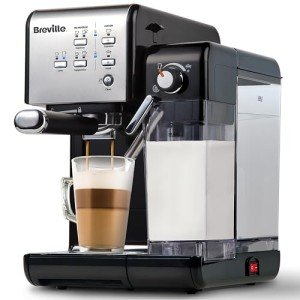10 Inspiring Images About Commercial Espresso Machines
The Rise of Home Espresso Machines: A Comprehensive Guide
As coffee enthusiasts continue to seek fresh and flavorful brews at home, the appeal of home espresso machines has risen recently. No longer just the domain of coffee shops and cafe, these machines empower people to craft barista-quality espresso drinks from the convenience of their kitchen areas. This post will check out the different types of home espresso machines, their functions, and factors to consider for picking the ideal one. In addition, it will supply a selection of FAQs to help prospective purchasers make informed choices.
Types of Home Espresso Machines
Home espresso machines can be categorized into several categories based on their mechanisms and user-friendliness. Each type has its distinct features, pros, and cons.
Type
Description
Pros
Cons
Manual Espresso Machines
Requires the user to manually manage the developing process, including methods like pulling a lever to create pressure.
- Complete control over developing procedure
- Compact style
- Requires ability and practice
- Time-consuming
Semi-Automatic Machines
Machine automates water flow and pressure, however the user still controls the dosing and duration of the developing procedure.
- Balance of automation and control
- Versatile
- Learning curve for refining techniques
Completely Automatic Machines
Automates the entire developing procedure, from grinding to brewing, often with programmable settings for customized drinks.
- Extremely easy to use
- Quick and practical
- Less control over the developing process
- Higher price point
Pill or Pod Machines
Uses pre-packaged espresso pills or pods to develop coffee rapidly and quickly.
- Extremely easy to use
- Minimal cleanup
- Limited taste variety
- More costly per cup than ground coffee
Super-Automatic Machines
Combines features of fully automatic machines with built-in mills, allowing users to brew whole bean espresso and milk-based drinks with one touch.
- All-in-one benefit
- Ideal for milk-based drinks
- Often the most costly
- Can be large
Functions to Consider
When selecting a home espresso machine, prospective buyers must think about the following features to ensure they pick a machine that satisfies their requirements:
Grinder Type:
- Built-in mills can provide fresher grounds however might need more maintenance.
- Different mills permit more modification of grind size.
Pressure:
- Look for machines that produce at least nine bars of pressure, which is optimum for brewing espresso.
Water Temperature Control:
- Machines with adjustable temperature level settings permit better extraction of flavor from beans.
Milk Frothing Options:
- Consider whether you desire a manual steam wand for frothing or an automatic milk frother for benefit.
Relieve of Cleaning:
- Machines with detachable parts and self-cleaning functions significantly reduce clean-up time.
Size and Design:
- Ensure the machine fits comfortably in your kitchen area and aligns with your aesthetic preferences.
Budget:
- Set a budget before beginning your search, as costs can range considerably from affordable models to high-end machines.
Benefits of Home Espresso Machines
Owning a home espresso machine offers numerous benefits:
- Cost-Effective: Over time, developing espresso in the house can save coffee lovers money compared to frequent coffee shop visits.
- Modification: Users can explore different beans, grind sizes, and developing strategies to find their ideal cup.
- Convenience: The capability to brew espresso at any time eliminates the need to go out to a café, specifically advantageous during late nights or mornings.
- Quality assurance: With a home machine, individuals have complete control over the quality of active ingredients and brewing processes.
Drawbacks of Home Espresso Machines
Nevertheless, there are some drawbacks to think about:
- Initial Investment: High-quality espresso machines can be costly, needing a substantial in advance financial investment.
- Learning Curve: Mastering the art of espresso developing can require time and practice, which might be daunting for newbies.
- Maintenance: Like any home appliance, espresso machines require routine cleansing and maintenance to make sure ideal efficiency.
FAQs
1. What is advice here of home espresso machine for novices?
Response: For newbies, a semi-automatic machine is frequently advised as it uses a balance between control and automation, enabling you to find out the essentials without overwhelming intricacy.
2. How much should I invest on a home espresso machine?
Answer: Entry-level machines can start around ₤ 100 to ₤ 300, while higher-end designs can vary from ₤ 500 to over ₤ 2000. It's necessary to set a budget based upon your anticipated usage and preferred functions.
3. Do I need a different grinder?
Answer: While some espresso machines include integrated grinders, purchasing a separate grinder enables greater modification and guarantees better quality grounds.
4. How often should I clean my espresso machine?
Response: Cleaning frequency can differ by machine type, but it's generally advised to clean up the machine after each use and carry out deep cleanings weekly or regular monthly, depending upon usage.
5. Can I make milk-based beverages with any espresso machine?
Response: Not all machines feature milk frothing capabilities. If you take pleasure in drinks like lattes or coffees, try to find a machine with a steam wand or automatic frother.
Home espresso machines are changing the method coffee connoisseurs enjoy their beloved brews. With numerous types and advanced features available in the market, there is something for everybody. Whether it's the joy of creating unique dishes or simply appreciating the best shot of espresso, buying a home espresso machine can boost both the coffee-drinking experience and the lifestyle for coffee fans everywhere. Similar to any financial investment, it is important to weigh the benefits versus the prospective downsides and choose a machine that seamlessly fits both your lifestyle and choices.
